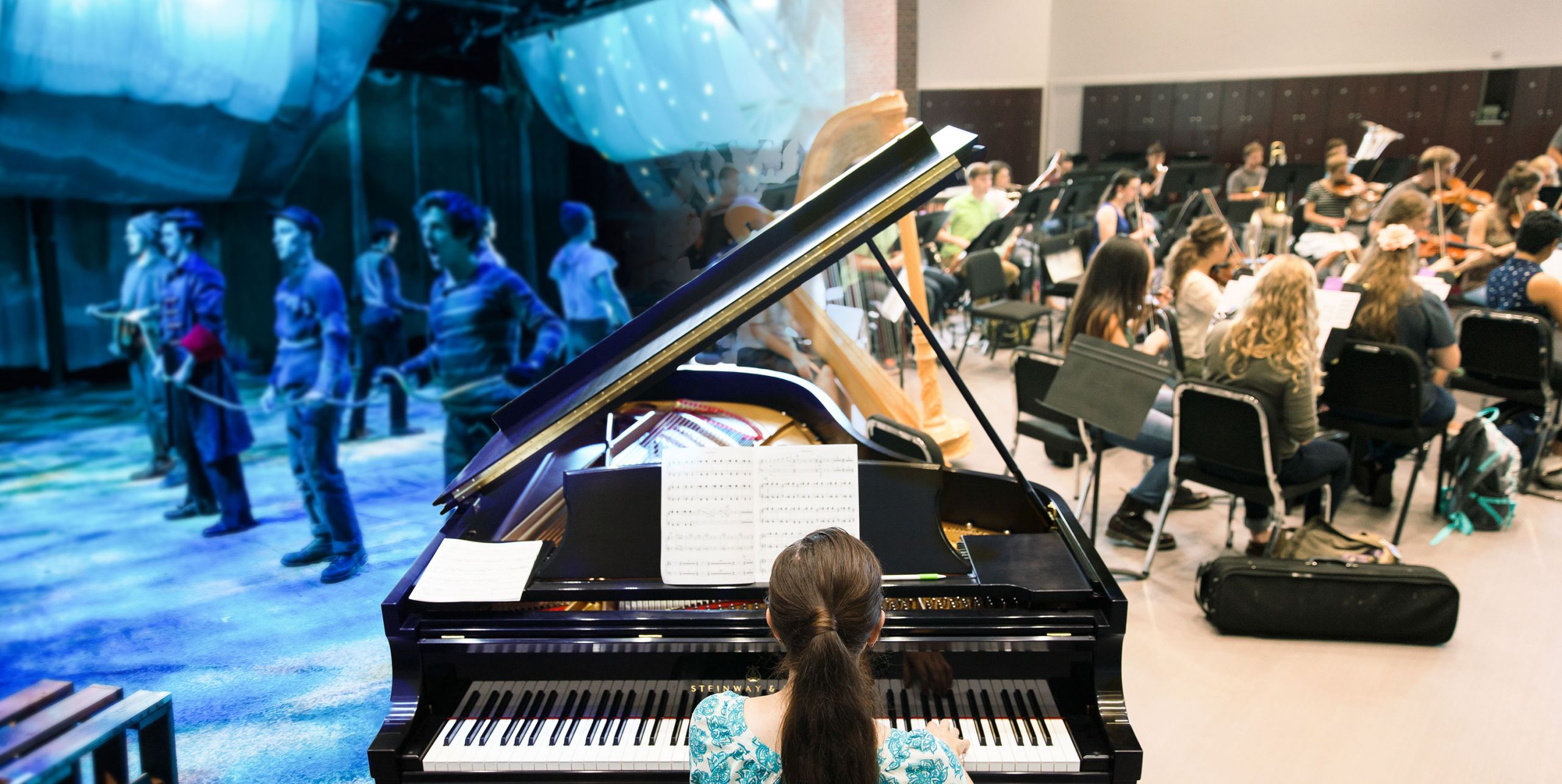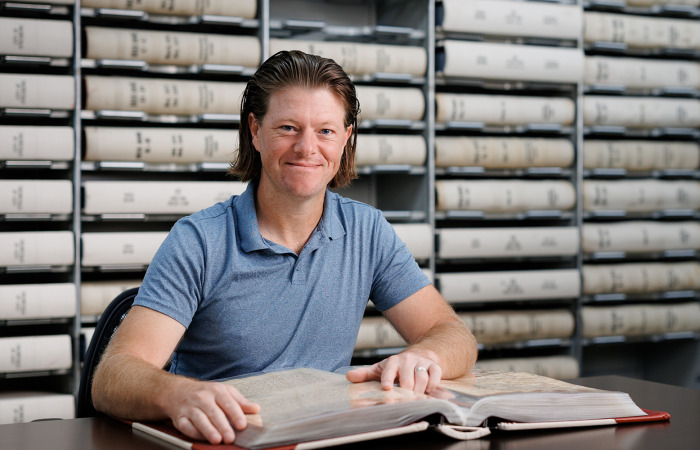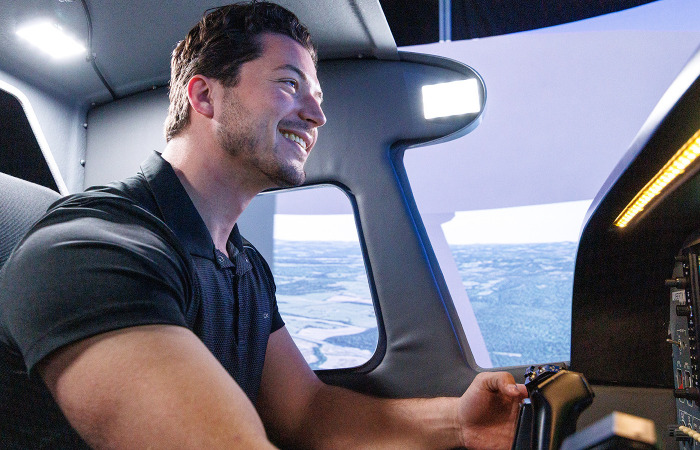Students with eclectic interests or whose chosen career paths require a varied range of skills will find that an education at Liberty University can provide them with the specialized training they need.
As an accredited liberal arts university, Liberty offers over 300 residential degrees, including undergraduate and graduate offerings in education, history, business, the sciences, and communication, as well as highly specialized programs such as law, engineering, and medicine.
But in addition to traditional programs of study, students can pursue degrees that combine courses from multiple academic areas, making them more attractive to employers.
“Several years ago we realized that students could be better prepared to enter the job market if their degree contained coursework that crossed the boundaries of individual schools,” said Dr. Ronald E. Hawkins, Liberty University provost and vice president for academic affairs. “Participation in multiple schools and colleges within the university allows students to develop a range of knowledge and skills that enhances their opportunities to find employment in today’s demanding job market.”
Below are some examples of Liberty’s cross-disciplinary offerings:
School of Music
While the school’s Center for Music & Worship has long prepared Liberty graduates for careers in ministry, Dr. Vernon Whaley, dean of the School of Music, said that churches are often looking for additional skill sets.
“When I came to Liberty in 2005, I was asked to teach students how to function in roles similar to the one I held in a megachurch in Pensacola, Fla.,” Whaley said. “I had eight full-time employees working with me at Olive Baptist Church. All of them had different tasks within the church, which served about 8,000 people.”
Among the first programs to be developed were the B.S. in Music and Worship with concentrations in worship leadership, business (in partnership with the School of Business), theater (in partnership with the Department of Theatre Arts), worship technology (in partnership with the School of Communication & Creative Arts), biblical studies, youth ministry, pastoral studies, and women’s ministry (in partnership with the School of Divinity).
“While we recognized that students are very important in the education process, we realized early on that the employer is a primary customer,” Whaley said. “We were pretty sure if we focused on the employer’s needs, our graduates could get jobs. And they have.”
By implementing this customer-focused approach, the Center for Music & Worship has seen about an 85-87 percent job placement rate for its graduates. Graduates are serving in some of the largest and most influential ministries in the country.
The worship program has grown from 89 students its first year to between 650 and 700 students, and concentrations have increased to 13 areas of study. There are now additional concentrations or degrees for worship students in artist development, leadership communication, music and world culture, songwriting, film scoring, and cinematic arts.
“We still partner with other schools and colleges within the university,” Whaley said. “For example, the School of Music partners with Liberty’s Cinematic Arts, Zaki Gordon Center to provide the B.S. in Music and Worship with a concentration in Cinematic Arts. Worship majors with experience in filmmaking can prepare short films for worship services.”
Cinematic Arts
Stephan Schultze, executive director of the cinematic arts department, sees many ways students can enhance their degrees with skills taught within the cinematic arts department. This is a unique time in history when our 21st-century expectations in communications are driven by audio-visual content rather than the written word, he explained. Students who gain a solid understanding about how to create this content are in demand and relevant to a variety of vocations.
Currently, cinematic arts works together with the Department of History and the Schools of Business, Music, and Government. Schultze sees other potential opportunities to enhance cross-disciplinary experiences in physical education, law, health sciences, education, engineering, and behavioral sciences. Providing cross-disciplinary experiences in the classroom through audio-visual content creation allows students from a variety of disciplines to interact with and learn from one another.
“While specializing in cinematic arts, a history student produced visual and audible content that led to a job,” Schultze said. “They learned to shoot interviews, create narratives, and put a project together, all while working alongside other disciplines.
“These skills have applications in many different vocations,” he added. “The primary resource from which we gain understanding of the world today comes from the audio-visual world. Studies have shown that 50 percent of what you know today will be obsolete in five years. The way to stay current in our busy lives is through audio-visual content.”
Department of Global Studies
While technical skills are essential for landing a job, the ability to engage a multicultural environment is becoming more and more important in a world made smaller by new media.
“If you look at the world we live in, globalization is affecting us all,” said Melody Harper, chair of the Department of Global Studies. “No longer are megacities the only places we experience cultural diversity. It is also happening in small towns like Lynchburg.”
Whether a student plans to work in the U.S. or abroad, according to Harper, they can expect to navigate an ever-growing cultural melting pot. The ability to effectively interact with other cultures has become an essential skill in areas such as business, medicine, and education.
“Even if you are a nurse at Lynchburg General Hospital, you are going to be encountering people with diverse cultural backgrounds,” Harper said. “Many students are interested in working in an international context; it is something that employers are now looking for.”
She added that recent studies have shown that “cross-cultural competency” is one of the top four skills companies are seeking in employees.
The Department of Global Studies, which operates under the School of Divinity, offers concentrations for programs such as aeronautics, business management, information management systems, youth ministry, religious studies, and music and world cultures. This fall, the department launched a creative individualized study program that combines Teaching English as a Second Language (TESL) with global studies and includes a semester-long international internship for both areas of study. It plans to soon offer a specialization within the School of Nursing, as well. Students can add global studies as a second major or a minor to their chosen degree program.




